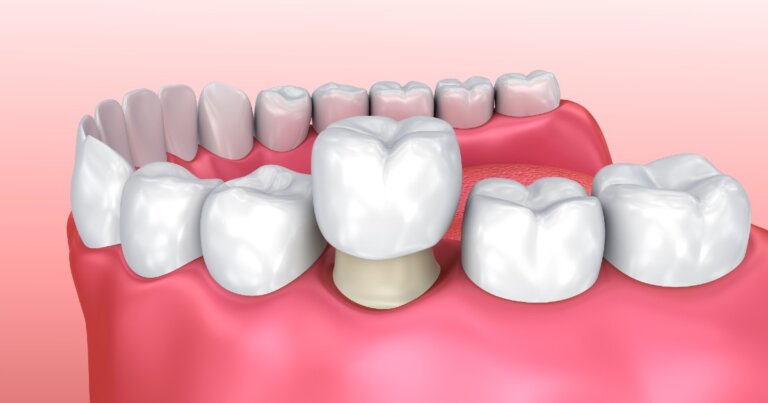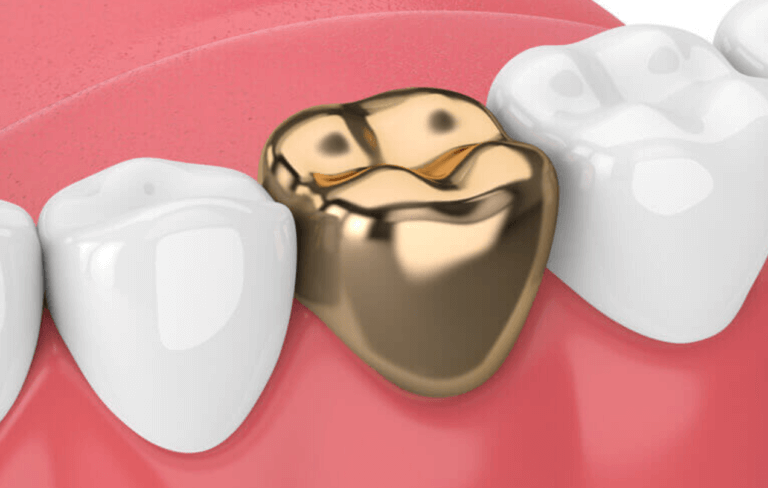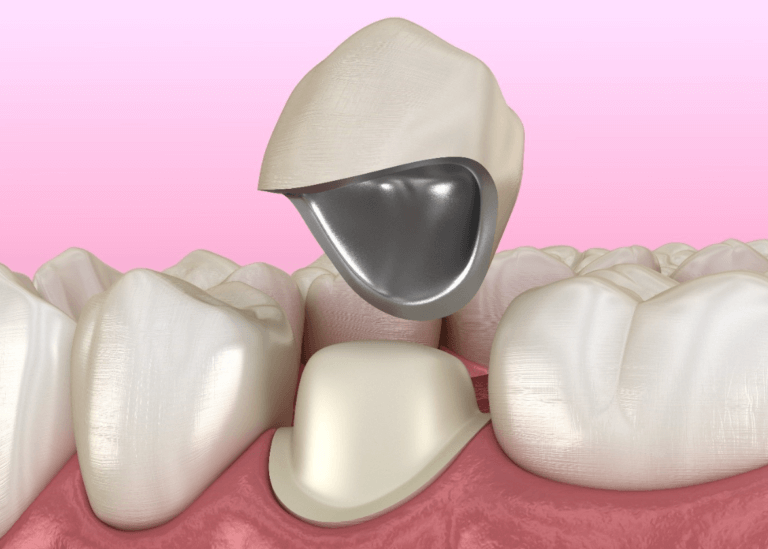Dental Crown

What Is A Dental Crown?
A Dental Crown is a custom-made cap that fits over a damaged or decayed tooth, restoring its shape, strength, and appearance. It fully covers the visible part of the tooth above the gumline, providing protection and an aesthetically pleasing finish. Crowns are typically crafted from materials like zirconia, gold, porcelain-fused-to-metal, or lithium disilicate, depending on your needs and preferences.
Each crown is tailored to match the size, shape, and color of your natural teeth, offering a seamless, natural look. Before deciding if a dental crown is the right solution for you, here’s what you should know:
- Who Needs Dental Crown?
- Benefits Of Dental Crowns
- How Much Does Dental Crown Cost?
- Types Of Dental Crowns
- Steps In The Dental Crown Procedure
- Frequently Asked Questions About Dental Crowns
If you have any further questions about Dental Crown or other dental services offered at Atlas Dental, please contact us.

Free phone consultation
Have a question about Dental Crowns? Schedule a free phone consultation with our cosmetic dentist.

5 star google reviews
Our patients love us! See for yourself why patients are choosing Atlas Dental for their Dental Crowns.

Book Emergency Crown Visit online
Have a chipped or broken tooth and need a dental crown? Book online for emergency dental crown treatment.
Who Needs a Dental Crown?
Dental crowns are a versatile solution for many dental conditions, including:
- Damaged or decayed teeth: Crowns strengthen weakened teeth that have been severely decayed or damaged, restoring their function and appearance.
- Cracked or fractured teeth: A crown stabilizes cracked or fractured teeth, preventing further damage.
- Teeth with large fillings: Crowns provide support and protection for teeth with large fillings that need reinforcement.
- Worn-down teeth: If your teeth are worn down from grinding or erosion, a crown can restore their original size and shape.
- Root canal-treated teeth: Crowns protect and strengthen teeth that have undergone root canal therapy.
- Misshapen or discolored teeth: Crowns can improve the appearance of teeth that are misshapen or severely discolored, creating a more uniform and attractive smile.
- Cosmetic concerns: Crowns can address aesthetic issues such as gaps or asymmetry.
Each case is unique, and it’s essential to consult with a dentist to determine if a crown is the best option for your dental needs. If you have further questions about whether a Dental Crown is right for you, please contact us.

Benefits of Dental Crowns
Dental crowns offer numerous benefits, making them a popular choice for dental restoration:
- Enhanced protection: Crowns protect damaged teeth from further decay, fractures, and sensitivity.
- Restored function: Crowns restore the shape and strength of teeth, improving chewing, biting, and speaking.
- Improved aesthetics: Crowns can enhance the appearance of discolored, misshapen, or damaged teeth, boosting confidence in your smile.
- Durability: Made from strong materials like porcelain or metal alloys, crowns provide long-lasting solutions that withstand everyday use.
- Customized fit: Each crown is custom-made to blend seamlessly with your natural teeth for a natural-looking result.
- Versatility: Crowns can address a variety of dental issues, from decay to cosmetic enhancement, making them a flexible solution.
Consult with your dentist to determine if Dental Crowns are the right choice for your specific dental needs and goals. If you have further questions about the benefits of a Dental Crown, please contact us.
Cost of Dental Crown
The cost of a Dental Crown ranges between $1349-1449. The codes relevant to dental crowns in the Ontario Dental Association’s Suggested Fee Guide appear as follows:
Crowns, Porcelain/Ceramic/Polymer Glass
- 27201 – Crown, Porcelain/Ceramic/Polymer Glass: $1099 + Dental Lab Fee ($250-350)
Some crowns are more expensive than others. The three most common dental crown types listed in order from least expensive to most expensive are:
- All Ceramic crowns including Zirconia crowns and Lithium disilicate crowns
- Porcelain fused to metal crowns
- Full metal crowns, including gold crowns
Dental crowns are considered a major restorative service under all dental insurance plans and may or may not be covered by your dental insurance. Be sure to find out from your dental insurance plan provider how much you are eligible for before going ahead with dental treatment. Your dentist can help you submit an predetermination to your dental insurance.
For patients without dental insurance, Atlas Dental is pleased to offer dental financing through iFinance Dentalcard. Affordable payment plans start at 7.95% for terms of 6 months to 6 years. To learn more about Dentalcard dental treatment financing, follow this link.
Types of Dental Crowns
There are several types of crowns, each with unique benefits:
- Zirconia crowns: Extremely strong and biocompatible, zirconia crowns are known for their durability and natural appearance.
- Porcelain-fused-to-metal (PFM) crowns: These crowns combine the strength of metal with the natural look of porcelain, but may show a gray line near the gumline over time.
- All-ceramic crowns: These crowns offer the best aesthetics and are ideal for patients with metal allergies.
- Gold crowns: Durable and long-lasting, but their metallic appearance may not appeal to everyone.
Your dentist will recommend the best material for your needs based on the location of the tooth, its function, and your cosmetic goals. If you have further questions about all your dental crown options, please contact us.
Steps in the Dental Crown Procedure
A dental crown procedure typically takes two appointments:
First Appointment:
- Consultation and examination: Your dentist will assess the tooth and take x-rays to determine if a crown is the best option.
- Tooth preparation: The tooth is reshaped to make room for the crown.
- Impressions: Precise molds or digital scans are taken to ensure a perfect fit.
- Temporary crown: A temporary crown is placed to protect your tooth while the permanent one is made.
Second Appointment:
- Crown placement: The temporary crown is removed, and the permanent crown is adjusted and cemented into place.
The first appointment usually takes 1 hour to accomplish, and the second appointment can take up to 30 minutes. If you have further questions about how we make your Dental Crown, please contact us.

Frequently Asked Questions About Dental Crowns
- How long do dental crowns last?
With proper care, dental crowns can last between 10 to 15 years, depending on the material used and oral hygiene practices.
- Are there any risks associated with dental crowns?
Potential risks include tooth sensitivity, discomfort, or, in rare cases, allergic reactions to the materials used.
- Can a crowned tooth get a cavity?
Yes, the tooth underneath the crown can still develop cavities, especially near the gumline, if proper oral hygiene is not maintained.
- Are dental crowns covered by insurance?
Coverage varies depending on your insurance plan and the reason for the crown; it’s best to consult with your insurance provider for specific information.
Dental crowns are a versatile and effective solution for restoring and protecting damaged teeth, helping to improve both function and aesthetics. If you have further questions about the longevity of your Dental Crown, please contact us.

